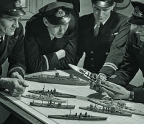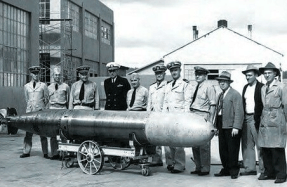

Inn April 1944, the United States War Department was consumed with thoughts of France. Operation Overlord, the invasion of Normandy, was only weeks away, and American and British war plan-ners were enmeshed in the details of executing the world’s largest amphibious invasion. While Washington and London’s attentions were focused on Overlord, a little-noticed decision made elsewhere in the Pentagon set in motion a chain of events that led to one of the first major conflicts between the Americans and a primary wartime ally, the Soviet Union. The affair cost American taxpayers hundreds of millions of dollars, embarrassed the Treasury and War Depart-ments, and set the tone for the tense relationship ahead between the two burgeoning superpowers. What caused the problem? Money.
Occupation forces need money they can spend in the local econo-mies, to buy goods and hire laborers. Frank A. Southard Jr., financial adviser for Allied Forces HQ in the Mediterranean, detailed in his 1946 book Finances of European Liberation the many repair and rebuilding needs the Allies faced as they liberated or occupied countries: “In the Mediterranean Theater, for example, 1,500 miles of roads had to be reconstructed. One American base section in Italy expended over 11 million man-hours on road repair.” The Allies hired local businesses to produce all sorts of goods, such as “rolling-mill products, yeast, furniture, coal and coke, and spare parts,” wrote Southard, adding that “considerable quantities of fresh food, mainly fruits and vegetables, were purchased in local markets.” The local population also needs access to a cash supply for their own business and




